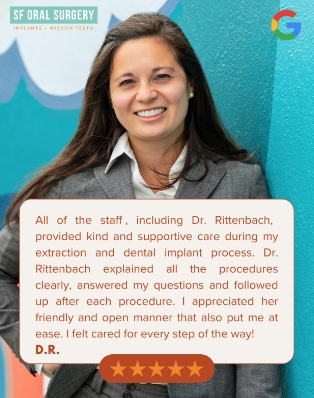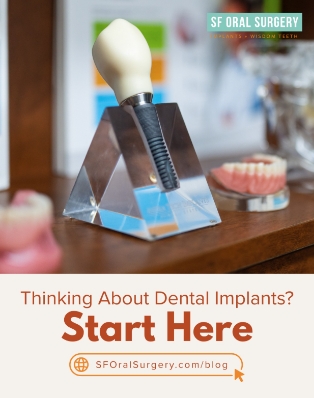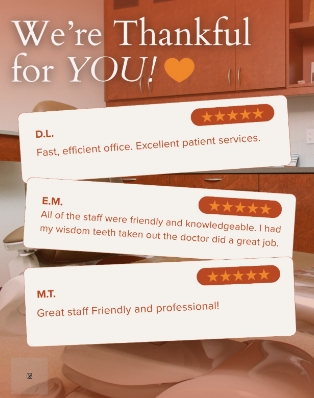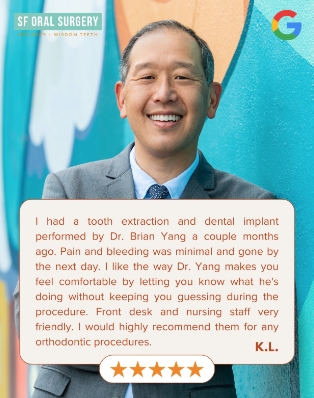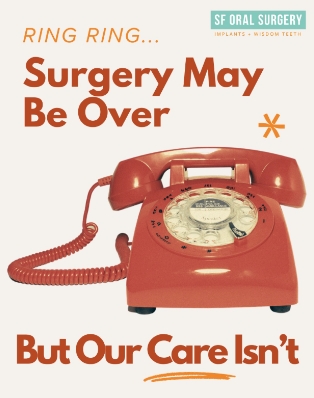
Living with dentures or missing teeth is tough. Not only do you have to adjust the way you chew and smile, but you are probably self-conscious about your appearance, too. If you have been thinking about getting a dental implant for a while now but have been afraid of what life would be like afterward, this article should be able to help you decide. You learn what a dental implant is, why you should get one, the process, and the recovery period.
What Are Dental Implants?
A dental implant surgery replaces the tooth root with a screw-like metal or post. After undergoing this surgery, most people will take up to eight months for a complete recovery. Some people, however, will take longer, especially if they require specialized procedures or have pre-existing conditions to treat before undergoing the operation.
Reasons for Getting Dental Implants
People choose to have dental implants to restore the function and appearance of their teeth. This is often the best option for those who have lost several of their teeth to severe dental conditions, such as tooth decay, periodontal disease, and oral injury. They end up getting dental implants, which are replacement tooth roots made from metal and have crowns that resemble their natural teeth.
A dental implant can offer permanent tooth replacement. If you prefer a removable option, consider getting a denture instead. Your oral surgeon or qualified dentist can explain the difference between the two to help you decide. During your talk with your oral surgeon, you will learn about the dental implant process along with the average timeline for the procedure.
The Dental Implant Process
Consultation: Up To One Hour
Your initial dental consultation is your opportunity to ask questions and learn about your options. Make sure that you are honest about your medical history to avoid any complications. The oral surgeon may ask you to undergo a 3D CT scan to determine if you are a good candidate for the procedure.
Impressions: One or Two Weeks After Your First Consultation
At this time, your doctor will be taking some impressions of your teeth and jaw. As you go through these, you can use this time to talk further about your expectations and the surgeon’s treatment plan.
Extraction: Can Occur At The Same Time As The Implant Does
Upon looking at your films, your oral surgeon may decide on tooth extraction in some cases. You may have the implant procedure on the day of your tooth extraction if your jawbone is healthy. However, if you suffer from bone loss or infection, you may need bone grafting.
Bone Grafting: Requires Some Months For The Bone To Heal
Besides tooth extractions, your oral surgeon may perform bone grafting to ensure that you have an excellent foundation for your implants. However, you will need some time to heal before you can have the actual dental implant surgery.
Dental Implant Surgery
After completing the preparations, your oral surgeon will schedule you for the procedure. They will insert the implant into your gum and connect it to your jawbone on the day itself. It will take some time for the implant to merge with the underlying bone completely.
How Long Is the Recovery Time for Implants?
On average, it takes up to eight months for you to recover from dental implant surgery. Your recovery time will take longer if you require a bone graft or if multiple teeth had to be extracted or implanted. Keep in mind that each oral situation is unique, and everyone heals at a different pace.
What to Expect During Dental Implant Surgery Recovery
Dental implant placement is an invasive procedure, so it entails post-operative care. While you will certainly experience pain and discomfort, remember that the healing process is there to ensure your implants bond with your jawbone. You will need your mouth to recuperate if you want to have successful dental implants.
First 24 Hours
The first day after the surgery is crucial because you face the risk of getting an infection. Your oral surgeon will give you detailed instructions on how to care for your wound. In the meantime, here are some general care instructions.
Caring for the Mouth
Focus on taking care of your mouth during the first 24 hours as you will experience tenderness and soreness around your teeth, gums, and jaw.
- Do not disturb or touch the affected area to prevent infection.
- Consider using a cold compress or an ice pack to reduce the pain and swelling. Your oral surgeon will also give you pain medication for your pain, swelling, and bleeding.
- Make sure that you keep your mouth clean at all times to prevent your wound from getting infected.
- Use a warm saltwater solution to rinse your mouth and avoid rinsing with peroxide or mouthwash until you have completely healed.
- If your temperature exceeds 101.5°F, contact your oral surgeon as you may have an infection.
Consuming Food
An hour after the procedure, the doctor will allow you to remove the gauze sponges in your mouth, so you can start taking in soft food.
- Avoid drinking from a straw or consuming hot liquid for a full day. You can have smoothies, mashed potatoes, cold soup, and yogurt, among others. Just make sure that you chew away from the surgical site and avoid acidic drinks.
- Try to get as much nutritional value you can get from what you are intaking.
- Remember that you should not eat hard or chewy foods, or you may risk damaging your implant.
Taking Medication
Expect to have nausea or dizziness for some time because of your doctor-prescribed medication. Most of the time, these are just over-the-counter anti-inflammatory drugs and painkillers. However, when combined with other medicines for your other ailments, these could interact with each other. It would help if you let your surgeon know what other medication you are taking so they can adjust.
No Driving Until the Anesthetic Wears Off
After the operation, you will be feeling groggy because of the anesthetic, so driving and operating heavy machinery is out of the question. Depending on the type of drug, you may even get temporary amnesia. Let 24 – 48 hours pass, so the anesthetic is gone from your system before you make any important decision. Ensure that you have someone to accompany you to the clinic and pick you up after the surgery.
48 – 72 Hours After
You can eat firmer foods on the second day, but if they cause you pain, stick to eating soft foods until you recover fully. Expect swelling, minor bleeding, and pain to continue. These symptoms will subside in time, so you need to follow your oral surgeon’s recommendations.
Alternate between hot and cold compresses, and make sure you are on top of your oral hygiene. Your mouth and teeth must stay in tip-top condition while your jaw heals. Brush your teeth gently and take the prescribed medications as indicated.
Three Days After Surgery
Some patients can return to their work right after three days, while others need a day or two more to recuperate. Smoking is a big no-no while recovering because it can lead to implant failure and infection. You will need to avoid the habit for at least a week.
Receiving the Permanent Crowns
After 6 to 9 months of waiting, your implants are now ready for crown installation. Some patients may find their wait much shorter, especially if they only needed a minimally invasive procedure. Some may even get their crowns on the day of their surgery.
Taking Care of Your Dental Implants
Dental implants are like your natural teeth. You need to brush and floss them regularly. Although your dental implants will not get cavities, they are subject to wear and tear. Make sure to take care of them to make them last longer. Gum problems can affect the strength and health of the supporting jawbones, so take good care of them, too. Visit your oral surgeon or dentist yearly so they can take a look at your teeth.
The End of the Road
When it comes to dental implant recovery, it is always best to follow your surgeon’s instructions and recommendations. Each patient recovers at a different pace, so you do not need to worry if you are not recovering as fast as you should. You could have other underlying conditions, or the doctor may have performed several other procedures during surgery.
Getting Dental Implants
Hopefully, reading this article has settled your fears about dental implants and the corresponding recovery time. If you are dealing with a skilled and experienced doctor, they will manage your expectations and make sure that you are well-informed throughout the entire process.
After your recovery, you will now be able to smile and chew more naturally. Knowing that you do not have to worry about dentures moving around your mouth, or being self-conscious about a missing tooth, will make the recovery process worth it.
If you are looking to get your dental implants done, check out a reputable oral surgeon within your area. For patients in San Francisco, contact SF Oral Surgery today.
Request A Consultation
Get To Know Your Team | Follow Us On Instagram

